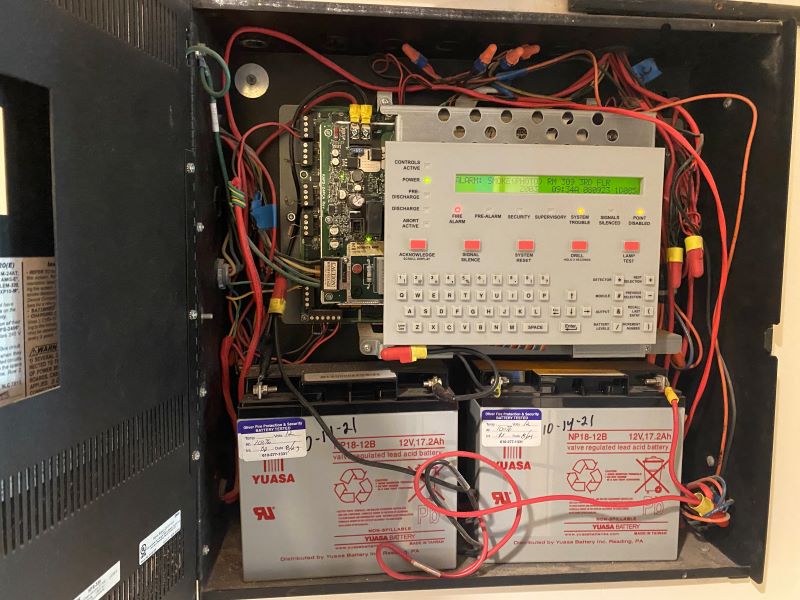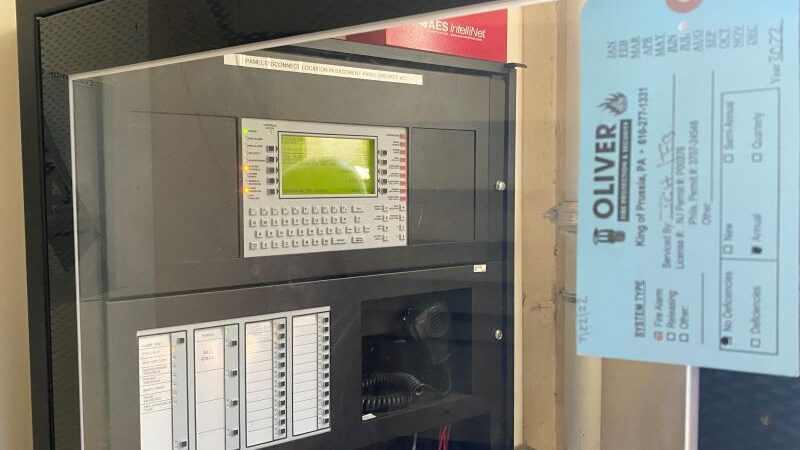Article by Pete Mannherz – Fire Alarm Specialist
Understanding the importance of primary and secondary power supplies in a fire alarm system is crucial for ensuring safety and compliance. Fire alarm systems require at least two independent and reliable power sources: a primary source for normal operations and a secondary source to take over in case of primary power failure.
Typically, fire alarm systems rely on the power utility as their primary power source. Once the electrical power enters a building, it is distributed through a main electrical panel and one or more subpanels. These subpanels have individual branch circuits providing power to outlets, switches, and fixed electrical equipment, like emergency exit lights, which must have dedicated breakers labeled for easy identification.

In the event of a primary power loss, the fire alarm system must be equipped with a secondary power supply that activates within 30 seconds, ensuring no signals are lost. This secondary power source also needs to operate if the primary power drops below acceptable limits.
Secondary power can come from batteries, an automatic starting generator with batteries, multiple generators, or uninterruptible power supplies (UPS) such as standby UPS, line-interactive UPS, and double-conversion UPS. An uninterrupted power supply is fed through a transfer switch to an inverter and then out to the load.
The secondary power supply must be capable of powering the entire fire alarm system in normal operational mode for at least 24 hours, and then sound an alarm for at least 5 minutes at the end of this standby period. Standby power requirements depend on the type of fire alarm system. Remote and auxiliary station systems require a 60-hour standby power supply, while local alarm systems in commercial and residential buildings must maintain at least a 24-hour standby power supply.
Understanding these requirements helps ensure that fire alarm systems remain operational during power failures, providing continuous protection and peace of mind.

